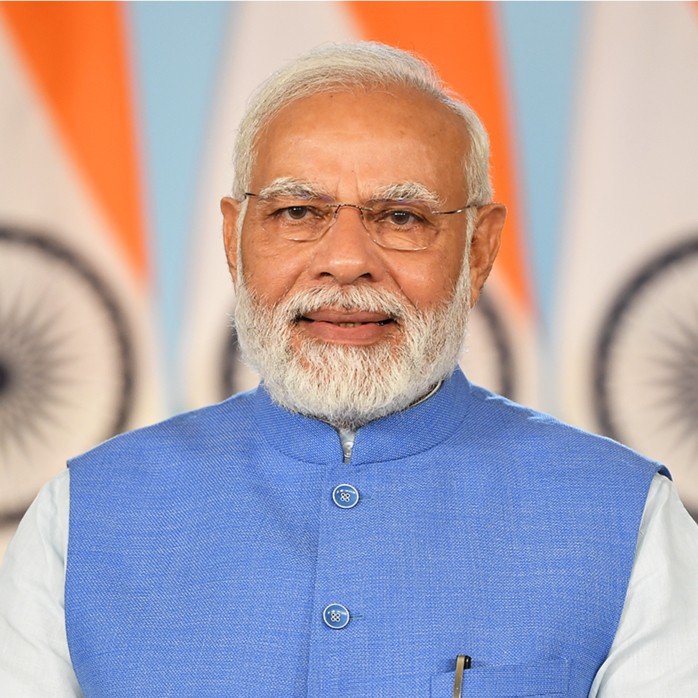New Delhi: The Prime Minister, Narendra Modi, inaugurated the 32nd International Conference of Agricultural Economists (ICAE) at the National Agricultural Science Centre (NASC) Complex today. The conference, themed “Transformation Towards Sustainable Agri-Food Systems,” aims to address the pressing need for sustainable agriculture in light of global challenges such as climate change, natural resource degradation, rising production costs, and conflicts. Around 1,000 delegates from approximately 75 countries participated in the event.
In his address, the Prime Minister expressed delight at hosting the ICAE in India after 65 years. He welcomed the dignitaries on behalf of India’s 120 million farmers, over 30 million women farmers, 30 million fishermen, and 80 million animal keepers. “You are in the land which is home to more than 500 million livestock. I welcome you to the agricultural and animal-loving country of India,” Shri Modi said.
PM Modi emphasized the enduring nature of ancient Indian beliefs and practices in agriculture and food. He highlighted the emphasis on science and logic in Indian agricultural traditions, mentioning the medicinal properties of food as a well-established science. He also referenced ‘Krishi Parashar,’ an almost 2000-year-old treatise on agriculture, showcasing India’s rich heritage in agricultural research and education. “ICAR itself boasts of more than 100 research institutes,” he noted, adding that India has over 500 agricultural colleges and more than 700 Krishi Vigyan Kendras.
The Prime Minister discussed India’s diverse agricultural landscape, mentioning the country’s 15 distinct agro-climatic zones and the varied agricultural produce that changes within just a hundred kilometers. He pointed out the relevance of all six seasons in Indian agricultural planning. “This diversity is crucial for global food security and makes India a ray of hope in the world,” he remarked.
Recalling the previous ICAE held in India 65 years ago, PM Modi highlighted the transformation of India from a newly independent nation struggling with food security to a food surplus country. Today, India is the largest producer of milk, pulses, and spices, and the second-largest producer of food grains, fruits, vegetables, cotton, sugar, tea, and farmed fish. He underscored India’s progress from being a global concern for food security to providing solutions for global food and nutrition security. “India’s experience is valuable for discussions on food system transformation and is sure to benefit the global south,” he said.
PM Modi reiterated India’s commitment to global welfare as a ‘Vishwa Bandhu,’ referencing India’s vision for global welfare through mantras such as ‘One Earth, One Family and One Future,’ ‘Mission LiFE,’ and ‘One Earth One Health.’ He emphasized the holistic approach needed to tackle challenges in sustainable agriculture and food systems.
Highlighting India’s small farmers, who own little land but constitute 90% of the farming community, the Prime Minister pointed out their significant role in India’s food security. He noted the similarity of this situation in several developing countries in Asia, making India’s model widely applicable. He cited the positive results of promoting chemical-free natural farming and the government’s focus on sustainable and climate-resilient farming.
PM Modi also mentioned the development of nearly nineteen hundred new climate-resilient crop varieties in the last decade, including water-efficient rice and black rice, a superfood known for its medicinal value. He expressed India’s eagerness to share its agricultural advancements with the global community.
Addressing the nutrition challenge alongside water scarcity and climate change, the Prime Minister presented millet, or ‘Shri Anna,’ as a superfood solution. He noted India’s role in promoting millets globally, celebrating the International Year of Millets last year.
The Prime Minister discussed various initiatives linking agriculture with modern technology, such as the Soil Health Card, solar farming, the e-NAM digital agriculture market, the Kisan Credit Card, and the PM Fasal Bima Yojana. He also highlighted the formalization of agriculture and allied sectors, micro-irrigation expansion, ethanol blending, and the use of digital technology in agriculture, including the PM Kisan Samman Nidhi and the digitization of land records.





